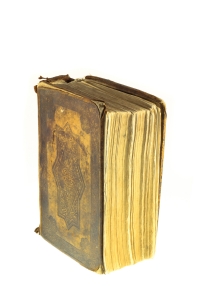What is “true literature?” That is the controversy we found the other day looking up about the Newberry Medal.
http://en.wikipedia.org/wiki/Newbery_Medal under “controversy”
Some people say that books like Newbery Medalists and Pulitzer Prizers turn people off from reading. Why don’t they include things like the Magic Treehouse and Harry Potter on reading lists as “great reads?” Because honestly, those are what get kids into reading more than books like “The White Stag” (a Newbery book which I tried/failed to read once in elementary school).
What makes a good book for people? Why do people decide to read what they read? What is “great literature?”
For me, a book has to have good language; if there’s a decent story but it’s written horribly, I won’t read it. I also think it’s important for the author to put in a lot of character development. That’s why I think I never finished Fablehaven 5, because by the end it was just big scary creature after big scary creature and lots of adventures with no real direction in the character’s lives. I also like books that have meaning and give me lots to think about afterwards.
I for one have enjoyed many of the classics and newbery books and found good insights in many, although I remember when I was younger I specifically read Gone With the Wind and Les Miserable unabridged just to look smart and not for their literary value (truth comes out!!!)

2 Responses
This is a debate I definitely have some opinions about as an English major. It’s a dilemma isn’t it? Either you are reading “fun stuff” or “classics” but there doesn’t seem to be a lot of middle ground between those. I also love that you read Les Miserables and Gone With the Wind for the smartness factor. 😉
I think there’s a whole host of classes of books that would be great to read in English class – pop psychology books like Blink, biographies, histories/personal stories like Unbroken or Band of Brothers, fantasy books, and scientific discoveries such as the development of the atomic bomb or the discovery of DNA just to name a few. I don’t know if I’d call any of those things ‘true literature’ because literature in my mind will always refer to the classic novels I studied in school. However, I don’t understand why standard English classes have such a narrow focus on classic English literature. English lit has good value, but I think it’s a great disservice to not include readings and writings from a much broader selection.